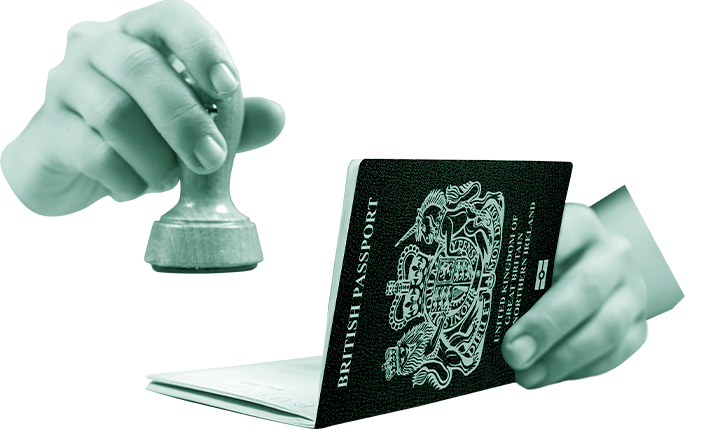Let's Talk

Need Help Urgently?
Call our 24 hour rapid response team now on 0333 311 1090
Request a callback
"*" indicates required fields


The UK government created the Seasonal Worker visa to meet the labour needs of some industries. This visa lets people from chosen countries take temporary work in the UK’s horticulture and poultry sectors. There are specific eligibility requirements that applicants need to fulfil to get this visa. These rules help manage the program and make sure it follows the UK’s employment and immigration laws.
The Seasonal Worker visa is a short-term option for UK businesses that need workers, especially in areas like farming, fruit and vegetable picking, and poultry production. The UK government set up this type of visa so businesses can find the help they need during busy times.
This visa works well for both employers and workers. UK companies can hire people for seasonal jobs. At the same time, workers from other countries can find temporary work and gain experience in the UK. The visa has specific rules with clear eligibility criteria, steps to apply, and conditions to stay.
The Seasonal Worker Visa Program was created to meet the changing labour needs of the UK’s agricultural sector. This mainly focuses on horticulture and poultry production. These important industries often have a hard time finding enough local workers during busy times.
With this program, approved UK employers, known as scheme operators, can hire workers from certain countries for a set time. This program is meant to be temporary. It helps to fill seasonal gaps without affecting the long-term UK job market.
The Seasonal Worker Visa Program follows rules about worker rights, pay, and housing. This helps to make sure that workers are treated fairly and that hiring practices are ethical. The program is regularly checked and updated to match economic changes and industry demands.

The UK’s horticulture and poultry sectors need seasonal workers to keep up with demand. This is especially true during harvest times and busy poultry production cycles. If there are not enough seasonal workers, it can hurt these industries’ ability to stay competitive and meet what consumers want. It can also affect the UK economy.
The Seasonal Worker Visa is a solution to this issue. It helps employers bring in workers from other countries in a legal way. This visa makes sure there is a steady workforce. This allows these sectors to work at their best when they are busiest.
The visa program does more than help the economy. It also supports the UK’s food supply chain, making it stronger and more sustainable. The success of the program relies on good teamwork among the UK government, industry leaders, and the seasonal workers who bring their skills and hard work.
For people thinking about applying for a Seasonal Worker visa, it is very important to meet the eligibility criteria. A key part of this process is getting a Certificate of Sponsorship (CoS) from a UK employer approved by the Home Office. This employer must work in horticulture or poultry production.
In addition, applicants must be at least 18 years old. They also need to show they have enough money to support themselves during their time in the UK. It is important that they do not have any reasons for refusal based on the UK immigration rules. People from certain countries should check if they need a visa to enter the UK for this purpose.
To get a Seasonal Worker visa, you need to meet some basic requirements. First, you must have a job offer and a Certificate of Sponsorship (CoS) from a UK employer in the horticulture or poultry production fields.
You also need to be at least 18 years old when you apply. A valid passport or travel document is a must too. You should show that you plan to leave the UK when your visa expires. This shows that your stay is temporary.
Moreover, you have to prove you can support yourself while in the UK. This means you should have savings, or your employer should promise to cover your expenses. This requirement highlights the need to be financially prepared and independent while working in the UK.
The Seasonal Worker visa has certain rules and limits. First, it does not allow access to public funds. This means that people with this visa need to support themselves while they are in the UK. Also, there are restrictions on doing other work outside the job they are sponsored for.
Visa holders can study in the UK, but some courses might need an ATAS Certificate (Academic Technology Approval Scheme). It’s also important to remember that dependents, like spouses or children, usually cannot join the visa holder in the UK through this visa.
Moreover, changing to a different visa while in the UK is often not permitted. Applicants must leave the UK and apply for a different visa from their home country or a country that allows it.
The Seasonal Worker visa helps UK employers in horticulture and poultry production hire workers from other countries. To take part in this program, businesses need to be approved as a licensed sponsor by the Home Office.
To get this approval, they must show that they follow UK employment laws and practice ethical recruitment. They also need to prove they can meet the needs of seasonal workers, like providing proper places to stay. Once a business is approved, they can give Certificates of Sponsorship (CoS) to the workers they want to hire.
Becoming a licensed employer to sponsor Seasonal Workers includes several steps. First, employers need to apply to the Home Office. They must provide detailed information about their business and recruitment methods. They should also show that they can properly handle their sponsorship responsibilities.
A key part of getting a license is to follow UK employment laws. This includes rules on minimum wage, working hours, and workplace safety. The Home Office checks the employer’s past record of following immigration rules.
In addition, employers must explain how they will provide for seasonal workers. They need to ensure safe and comfortable housing for them. The Home Office has a strict evaluation process. This helps protect workers’ rights and keeps the Seasonal Worker Visa Program fair.


Applying for the UK Seasonal Worker visa needs careful attention to the steps and documents needed. You can complete the application online using the UK government’s official website. Make sure to enter the right personal and work details.
Your passport must be valid and have enough blank pages for visa stamps. If required, you need to translate your supporting documents into English or Welsh. Lastly, you must pay the visa application fee and go to a biometric appointment at a visa application centre.
Once a person gets a valid Certificate of Sponsorship (CoS) from their future UK employer, they can start their visa application. The first step is to fill out the online application form. This form asks for personal details, travel history, and job information as listed on the CoS.
After filling out the online form, they must pay the visa application fee and the Immigration Health Surcharge. These fees help cover the costs of processing the application and allow access to the UK’s National Health Service.
The last step is to book and go to a biometric appointment at a visa application centre. At this appointment, they will give their fingerprints and take a photo.
Here’s a step-by-step breakdown:
A complete and accurate set of documents is very important for a strong Seasonal Worker visa application. Applicants need to have a valid passport with enough blank pages. They must also provide their Certificate of Sponsorship (CoS) reference number. This number is found on the CoS from their sponsoring employer.
It is usually required to show proof of financial support. This means applicants should provide bank statements that show they have enough money to take care of themselves while in the UK.
Other documents might be needed too. These include proof of where they will stay, their job contracts, and any educational certificates. A recent passport-sized photo that meets UK visa photo standards is also needed to finish the application pack.
Understanding the costs of the Seasonal Worker visa is important for both applicants and employers. The visa application fee must be paid online and cannot be refunded, no matter the result of the application. Applicants should check the current fee on the UK government’s website before applying.
Along with the visa application fee, people must pay the Immigration Health Surcharge. This fee allows access to the UK’s National Health Service (NHS). Employers may decide to pay for some of these costs, like accommodation or travel, as part of the job agreement. It is important to clearly explain these financial details to prevent any confusion.
The cost of a Seasonal Worker visa has several parts that applicants need to include in their budget. It is important to understand these costs to make the application process smoother.
The main cost is the visa application fee that you pay to the UK Home Office. You also have to pay the Immigration Health Surcharge. This fee lets you use the UK National Health Service while you are there. Below is a table that shows these fees.
| Fee Type | Cost |
| Visa application fee | £259 |
| Immigration Health Surcharge (per year) |
There are also other possible costs. These can include travel costs to the visa application centre. Some people may choose to pay for extra services like document translation or having their passport sent back with a courier.
Seasonal workers in the UK have rights to pay and work conditions that UK law protects. This helps ensure that they are treated fairly and have good work practices. Employers must follow these rules to keep their sponsorship license.
The National Minimum Wage is the lowest amount seasonal workers can earn per hour. There are different pay rates based on age and job type. It’s important to know that there are strict rules about taking money from wages for things like housing, travel, or services offered by the employer.
Seasonal workers also have rights to rest breaks, paid time off, and a limit on how many hours they can work each week, as set by UK law. They should always work in a safe environment free from discrimination and should not face illegal wage deductions. Employers have to explain these rights and conditions clearly at the start of the job.
The Seasonal Worker visa lets you stay for up to six months within a 12-month period if you work in the horticulture sector. If you are involved in poultry production, your stay will follow the specific season. It can start no earlier than October 1st and should end by December 31st.
While you are in the UK, you can only work for your sponsoring employer. You can only do the job that is listed in your Certificate of Sponsorship (CoS). You cannot take other jobs, including self-employment or volunteering.

The Seasonal Worker visa has a set time limit based on the type of work. If you work in the horticulture sector, you can stay for up to six months. This time must fit within a year and is meant only for seasonal work.
For those in poultry production, the visa works a bit differently. Workers can enter the UK only during the busy season, starting from October 1st. You must leave the UK by December 31st of that year, even if you started working later.
It’s important to know that you usually cannot extend the Seasonal Worker visa. If you want to stay longer than your allowed time, you need to apply for a different UK visa that suits your situation and plans.
Understanding the rights and limits of the Seasonal Worker visa is important for anyone thinking about it. First, remember that this visa is only for temporary work. It does not lead to permanent residency in the UK.
While in the UK, people with this visa can work for their sponsor. They must earn at least the national minimum wage and can use healthcare from the National Health Service (NHS). UK employment law protects them. This law helps ensure they are treated fairly and have safe work conditions.
There are some limits, though. Visa holders cannot get public funds or benefits. They cannot bring family members with them. Changing to a different visa while in the UK is usually not allowed. They must leave the UK when their visa expires.

To get a UK Seasonal Worker Visa, people must meet specific requirements. One key requirement is to have a valid Certificate of Sponsorship (CoS) from a Home Office-approved sponsor in the edible horticulture or poultry production sectors. This CoS is tied to a job offer and shows that the job is genuine.
Applicants need to be at least 18 years old and have a valid passport or travel document. They must also show they can financially support themselves during their stay, either through personal savings or funds from their employer. This is to ensure they can take care of themselves, especially since the visa is temporary.
The Seasonal Worker Visa is for specific jobs in the horticulture and poultry production industries. In horticulture, the job roles include working on growing edible crops. This means growing fruits, vegetables, and mushrooms. The tasks cover planting, harvesting, packing, and grading these products.
For poultry production, the allowed tasks are many parts of poultry processing. This includes catching and handling birds, slaughtering, plucking, butchering, and preparing poultry meat. It also involves packaging poultry products. It’s important to know that this visa does not include jobs that fall outside these areas.

To apply for a Seasonal Worker Visa UK, you need a Certificate of Sponsorship (CoS) from an approved scheme operator. This paper shows that you have a job offer and follows immigration rules. The CoS has a unique reference number. You must have a valid CoS before you apply for this temporary work visa. If you do not have this certificate, the Home Office will likely reject your application. It is important to understand the requirements and get the right CoS for your application to be successful.
As part of the UK’s immigration rules, anyone applying for the Seasonal Worker Visa must show they can pay for their own expenses while in the UK. They need to prove they won’t need public funds. Applicants must show that they have at least £1,270 in their bank account for at least 28 days out of the 31 days before applying for the visa.
Another option is for the employer to pay these costs for the worker’s first month in the UK. The employer must agree to provide at least £1,270 for the worker’s expenses. This promise needs to be clearly stated on the worker’s Certificate of Sponsorship (CoS) to meet the financial requirement.
Individuals can start the process to apply for the UK Seasonal Worker Visa only after they get a valid Certificate of Sponsorship (CoS) from their future employer in the UK. They must submit their application online through the UK government’s official visa application website. This application needs to include personal, travel, and job details.
Applicants from some nationalities will need to go to a Visa Application Centre. There, they will give their fingerprints and have their photo taken. They usually need to provide supporting documents like bank statements and copies of their passport during the application process.
The UK Home Office requires a non-refundable application fee for Seasonal Worker Visa applications. You must pay this fee online while applying. The fee can change, so it’s a good idea to check the UK government’s website for the current amount.
In addition to this fee, applicants need to pay the Immigration Health Surcharge. This mandatory fee allows access to the NHS while you are in the UK. These costs show how important careful budgeting is when planning to work in the UK with this seasonal worker visa.

The amount of time you can stay in the UK with a Seasonal Worker Visa depends on the job you have. If you work in the edible horticulture sector, you can stay for a maximum of six months. This six-month stay must be within a 12-month period.
If your job is in poultry production, the visa is valid only during the peak season for that work. You can enter the UK no earlier than October 2nd, and you must leave by December 31st of the same year. This ensures that you follow the seasonal nature of the job.
While in the UK with a Seasonal Worker visa, people must follow specific rules. They can only work for the employer who sponsored them and in the job mentioned in their Certificate of Sponsorship (CoS). Doing any other type of work, whether it is paid or not, is not allowed.
Seasonal Worker visa holders cannot access public funds or benefits. This means they need to support themselves financially. They can study while they are here, but some courses require an ATAS certificate.

You usually cannot switch directly to the Temporary Work – Seasonal Worker Visa from another visa while in the UK. If you are already in the UK on a different visa and want to work as a Seasonal Worker, you will most likely need to return to your home country or a allowed third country to apply.
This rule shows how specific the Seasonal Worker Visa is. It helps fill short-term labor gaps but is not a way to gain permanent residency in the UK. If you are thinking about changing your visa, you should look into other visa options that might fit your long-term plans and meet the eligibility requirements.
A UK visa refusal can feel disappointing. However, it’s vital to understand the reasons behind it and look at what you can do next. The Home Office gives clear details about why a visa is refused. You have the choice to reapply or appeal the decision.
Common reasons for refusal often include not meeting eligibility criteria, having inconsistencies in your application, not providing enough supporting documents, or past immigration issues. It is important to fix these problems in any new applications or appeals. Getting help from immigration lawyers can be a good idea as they can offer advice based on your specific circumstances.
To get a UK Creative Worker Visa, you need to follow some steps. First, you must check if you meet the eligibility criteria. Then, you need to get a Certificate of Sponsorship from an employer who has a valid sponsor licence. After that, you can fill out the online application form. You will also need to provide supporting documents, like proof of your qualifications and work experience.
Temporary workers in the UK with a work visa need to know the rules of their visa. They must follow the limits on the type of work they can do. There are also restrictions on using public funds. Additionally, some may not be allowed to have a second job.

It is usually not possible to extend a Seasonal Worker Visa beyond the maximum period set by UK immigration rules. The way the visa is set up is for temporary work and has specific time limits.
Under UK immigration rules, people with a Seasonal Worker Visa cannot bring their family members to the UK. The rules of the visa are strict and temporary, so they do not allow for dependents to apply.


Call our 24 hour rapid response team now on 0333 311 1090
"*" indicates required fields
"*" indicates required fields